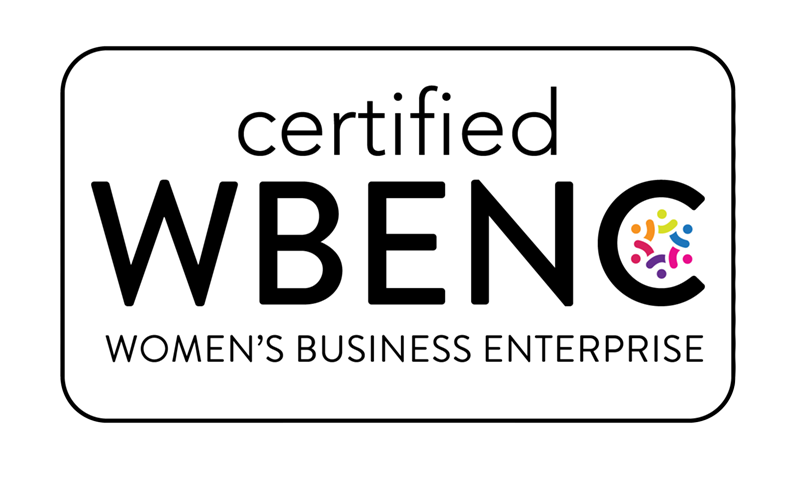U.S.-UK Trade Post-Brexit: Understanding the New Rules and Opportunities -
Part 29
Audio Conversation:
Full Blog Article:
When the United Kingdom officially exited the European Union in 2020, it marked a major turning point in global trade. For U.S. small and midsize businesses (SMBs), especially those new to international markets, Brexit has changed how we do business with one of our oldest and closest allies.
From new documentation requirements to shifting tariffs and evolving regulations, the post-Brexit U.S.-UK trade landscape requires attention, adaptability, and a solid compliance game plan. In this article, we’ll walk through what’s changed, where the opportunities are, and how SMBs can stay compliant and competitive in this new era.
The U.S.-UK Trade Relationship: A Strong but Shifting Partnership
The U.S. and the UK have long maintained a close trade relationship. In fact, the UK consistently ranks among the top five export destinations for U.S. goods. In 2022, bilateral trade in goods and services totaled over $270 billion, according to the Office of the United States Trade Representative (USTR). But since Brexit, new trade rules have been introduced, adding complexity and also new flexibility.
Without the UK tethered to EU regulations, there’s room for the U.S. and UK to develop tailor-made agreements and frameworks, and while a full U.S.-UK Free Trade Agreement (FTA) remains under negotiation, various bilateral pacts and memoranda of understanding (MOUs) have already started to shape a new chapter of cooperation.
What’s Changed Since Brexit?
Here’s how things have shifted for U.S. businesses trading with the UK:
1.
The UK is No Longer Under EU Customs Rules
That means separate customs declarations are now required when exporting to or importing from the UK. Documentation must be UK-specific, no more piggybacking on EU standards. For more on export paperwork, revisit
"Article 5: Export Documentation".
2.
Rules of Origin Are Now UK-Specific
To claim preferential treatment under trade programs, goods must meet UK-specific rules of origin. This directly affects tariff eligibility and how components or raw materials are sourced, something we also explored in
"Article 16: Import Tariff Exemptions".
3.
Diverging Regulations
The UK is gradually setting its own product standards, certification processes, and digital rules. For example, the UK has introduced the UKCA mark to replace the EU’s CE mark on certain products. These changes mean U.S. businesses must check requirements on a case-by-case basis.
Navigating Recent U.S.-UK Reciprocal Tariffs
Effective April 2025, the U.S. has imposed a 10% tariff on all UK imports and a 25% tariff on foreign-made vehicles, including those from the UK. These tariffs are part of a broader protectionist approach by the U.S. to balance trade and safeguard domestic industries.
The move has already made waves. Jaguar Land Rover, for instance, temporarily paused shipments to the U.S. while evaluating the financial impact. Similarly, Scotland’s whisky industry, which relies heavily on U.S. exports, is projected to lose hundreds of millions due to the new duties.
The UK has responded cautiously but firmly. Prime Minister Keir Starmer emphasized his administration’s intent to “shelter” UK businesses from the effects of U.S. tariffs and hinted at targeted industrial policies and possible retaliation. The UK government has begun consulting with local industries and has published a preliminary list of U.S. goods that may be subject to reciprocal tariffs if trade tensions escalate.
What this means for U.S. SMBs:
Tariff costs may rise unexpectedly, affecting pricing, supply chains, and customer relationships. U.S. importers and exporters must stay agile and informed, working with experienced customs brokers and trade advisors to plan for possible disruptions and explore alternate sourcing or market strategies.
Market Opportunities for U.S. SMBs
Despite political tensions and shifting tariffs, the UK remains one of the most attractive overseas markets for U.S. businesses. Key sectors offering growth potential include:
- Consumer Goods & Apparel: U.S. brands are popular and can command premium pricing.
- Technology & Digital Services: The UK’s digital-first economy is a strong match for U.S. software, AI, and cybersecurity firms.
- Specialty Foods & Beverages: American spirits, health foods, and snacks are in high demand.
- Medical Devices & Health Supplies: UK hospitals and healthcare providers frequently rely on U.S. technology and pharmaceuticals.
Compliance Considerations: What U.S. Businesses Need to Watch
Post-Brexit trade with the UK comes with its own set of compliance rules:
- Customs and Documentation: Separate UK declarations are required, and product classifications must align with UK customs codes. Be sure your HS codes are accurate, If you’re unsure as to whether you are using accurate HS codes, "Article 3: Harmonized System (HS) Codes" is a great starting point.
- Valuation and Duty Calculations: How you determine the value of goods for customs purposes can affect duty rates and eligibility for exemptions. For a deeper dive, check out "Article 15: Valuation Methods".
- Regulatory Compliance: Product safety standards, packaging requirements, and data regulations may differ from EU or U.S. expectations. Stay up-to-date with evolving UK standards, particularly if you sell electronics, toys, or digital products.
Current Trade Frameworks Between the U.S. and the UK
While there’s no formal Free Trade Agreement (FTA), a number of frameworks and agreements are helping to smooth trade:
- The U.S.-UK Trade and Investment Working Group: Promotes regulatory cooperation and reduces technical trade barriers.
- State-Level MOUs: Agreements between the UK and individual U.S. states (like Indiana and North Carolina) support mutual investment and trade-friendly environments.
- UK’s Developing Countries Trading Scheme (DCTS): Benefits U.S. businesses sourcing goods from UK suppliers that engage with developing markets.
How a U.S. Customs Broker Can Help
With tariffs shifting and compliance rules growing more complex, U.S. SMBs shouldn’t go it alone. A licensed U.S. customs broker acts as your partner in navigating this evolving landscape. From classifying products correctly to managing valuation and preparing proper documentation, a broker helps you avoid delays, reduce penalties, and explore tariff relief options.
Need to know if your product qualifies for a duty exemption? A broker can help with that, too, along with post-entry audits, compliance software integration, and risk mitigation strategies, see
"Article 28: Post-Entry Audit".
Summary: Key Takeaways
- Post-Brexit trade with the UK requires new customs declarations, regulatory awareness, and proactive compliance strategies.
- Reciprocal tariffs imposed in 2025 by the U.S. and the UK’s potential retaliation could increase trade costs, so SMBs must stay alert.
- The UK remains a high-potential market, especially for U.S. companies in food, tech, consumer goods, and medical sectors.
- Use trade advisors or customs brokers to stay compliant, reduce risk, and optimize your trade operations.
Frequently Asked Questions (FAQs)
Q1: How have U.S.-UK tariffs changed recently, and will they affect my business?
A1:
Yes. As of April 2025, the U.S. has placed new tariffs on UK imports, including a 25% duty on UK-made vehicles. The UK may retaliate, affecting a broader range of U.S. exports. These changes could increase costs and delay shipments.
Q2: Do I still need to meet EU standards when exporting to the UK?
A2: Not anymore. The UK now sets its own regulations, including product labeling and safety standards. Always check UK-specific requirements to avoid non-compliance.
Q3:
What’s the easiest way to ensure my shipments to the UK are compliant?
A3:
Work with a U.S. customs broker. They’ll help you navigate everything from documentation and HS codes to tariff classification and valuation.
Teaser for the Final Article
We’ve almost reached the end of our 30-part journey. In our final article, we’ll look to the future with Emerging Trends in Trade Compliance: What SMBs Should Know for the Future. From digital transformation and AI tools to ESG regulations and shifting geopolitical alliances, we’ll prepare you for what’s coming next.
🎧🎙️
Want to hear more?
Stay informed and inspired through two powerful channels:
- Borders & Bourbon - A Global Trade Podcast – Pour yourself a glass and join us for real talk on international trade. This show delivers solution-driven insights tailored for small businesses navigating the complexities of global markets. Available on all major streaming platforms.
- Global Trade Navigator - Prefer to read or listen to quick, practical tips? Explore our blog series or tune into the companion podcast on Spotify, where we break down each article to help you chart a smarter course through import/export compliance.
No matter your style, sip and listen, or scroll and learn, we’ve got your global trade journey covered.
References
- U.S. Trade Representative (USTR): Link
- UK Department for Business and Trade: Link
- UK Trade Tariff Tool: Link
- Office for National Statistics UK Trade Report: Link
- U.S. Census Bureau – Foreign Trade: Link
If you're curious to see how we can help, please visit our website http://magneticprecision.com/. For inquiries and questions, contact us at inquiries@magneticprecision.com.
Stay tuned for more insights as we continue our journey to mastering global trade compliance!


